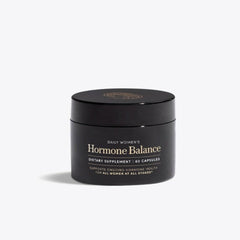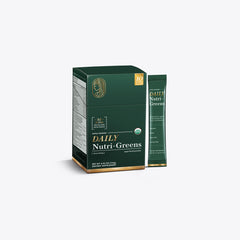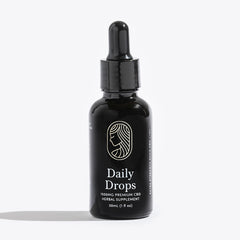Before we can talk about cannabidiol (CBD) and drug testing, we need to briefly discuss its sister cannabinoid — tetrahydrocannabinol (THC). Did you know that THC was once legal in the United States? For many, it comes as a surprise that at one point, THC-dominant cannabis (recreationally known as “weed”) was not only federally legal in the US. It was even described in the United States Pharmacopeia alongside detailed medicinal recommendations. Everything changed with the passing of the Marihuana Tax Act of 1937. This Act federally restricted the sale and use of cannabis before the Controlled Substances Act named all cannabis, including hemp, as a “Schedule 1 Drug” in the 1970’s.
Fast forward to 2021, where more than 50% of state legislatures have legalized THC-dominant cannabis for medical and/or recreational use despite these outdated federal regulations. Additionally, with the passing of the Agricultural Improvement Act of 2018, our federal government legalized hemp. It was defined as cannabis containing less than 0.3% THC. You read that right — hemp IS cannabis (and the source of most CBD)! The key difference between hemp and THC-dominant cannabis is the THC content, which we’ll touch on later in this post.
Now that THC-containing products — be it a state dispensary product or a hemp product containing <0.3% THC — are readily available to all Americans, millions of employees are left wondering how to navigate cannabis use in the face of looming drug tests. This likely leads you to the question, “does CBD show up on a drug test?”. Here we’ll break it all down.
Does CBD show up on a drug test?
The short answer? It’s possible.

Drug tests don’t typically test for CBD itself, as it is a non-intoxicating, federally legal compound.
THC use, on the other hand, is often tested by employers due to its ability to induce a “high”. Therefore, if you are taking a CBD product with THC, it can be possible to flag on a drug test.
Full-spectrum CBD products, like ours, do contain trace amounts of THC — but what does that really mean? All full-spectrum CBD products are derived from hemp, which by definition can contain up to 0.3% THC. THC-dominant cannabis (“weed”), on the other hand, typically contains anywhere between 10% – 30% THC; a comparatively large amount. The minute percentage of THC in full-spectrum CBD formulations is intended to help maximize the efficacy of your CBD through a process called the Entourage Effect — NOT to make you feel “high” or “intoxicated”, which is the end-goal with recreational use of THC-dominant products.
While some companies do offer “broad-spectrum” or “isolate” CBD formulations, which are notably advertised as being “THC-free,” that’s not always the case. Before purchasing a CBD product, you should always see if the company posts their third-party lab results, which show the exact cannabinoid content in that product. Ours can be found on each product page, with a full list located on our lab results page!
How drug tests actually work.
Whether it be urine, blood, saliva, or hair follicle testing, your body must excrete a minimum amount of THC in order for the test to turn up positive, a threshold called the Level of Detection (LOD). Each test has a different LOD, and can also detect THC for varying amounts of time post-exposure. Urine testing, for example, may detect THC and its metabolites up to a few weeks after exposure, whereas with blood testing, the window of opportunity for detection is only a few days.
While urine testing is the most common form of workplace drug testing, it’s qualitative, meaning that it’s either positive or negative — no telling how much, or how little, THC is in your system. Additionally, false positives are possible, as some tests are non-specific and can falsely identify CBD and its metabolites as THC. This is why many companies have policies for secondary, more sensitive testing in the event of a positive result on the primary screening.
Blood tests, on the other hand, may tell a more accurate story by providing insight into the degree of cannabis use through quantitative results when the concentration in the bloodstream is above the LOD.
Do I need to keep my dose in mind if I have a drug test coming up?
 The majority of our members take between 20mg-50mg of full-spectrum CBD per day, which is typically not high enough to surpass the LOD and subsequently receive a positive test. For reference, some of the most strict workplace testing has a THC cutoff of 50 ng/mL (nanograms per milliliter) — and most of our members do not meet that threshold. However, everyone will metabolize our products differently, and THC may build up in your system over time; so the more you take, the more likely you are to flag.
The majority of our members take between 20mg-50mg of full-spectrum CBD per day, which is typically not high enough to surpass the LOD and subsequently receive a positive test. For reference, some of the most strict workplace testing has a THC cutoff of 50 ng/mL (nanograms per milliliter) — and most of our members do not meet that threshold. However, everyone will metabolize our products differently, and THC may build up in your system over time; so the more you take, the more likely you are to flag.
Think of it like drinking alcohol. The more you drink, the higher your blood alcohol level (BAC) climbs. With full-spectrum CBD, the more you take, the more cannabinoids, including THC, potentially build up in your system, therefore possibly increasing the likelihood of a positive test result.
If you’re worried about an upcoming drug test, consider lowering your dose (or taking a break from your routine) and grabbing an at-home THC test from your local pharmacy to see if you may test positive before heading in. Additionally, if you have a good relationship with your employer, we suggest asking for a blood test and supplying them with our Lab Results, which show that our products meet all federal regulations.
So, does CBD show up on a drug test when I’m taking full-spectrum CBD? Well, CBD won’t — but, rarely, THC can.
While drug testing is unfortunately still a concern for many, the future may be brighter
As cannabis legalization continues to spread across the US, employers are forced to reckon with their existing policies around cannabis use. With new research touting the benefits of full-spectrum CBD —and cannabis as a whole — published regularly, employers must ask themselves: are we doing more harm than good by forcing our employees to practice cannabis abstinence?
At its core, Equilibria is a wellness company rooted in science and driven by a passion for destigmatizing CBD. Sure, like anything, it’s not for everyone — but we firmly believe that those looking to use CBD including hemp, as a tool for maintaining their well-being should be able to do so freely. Our mission is to bring balance to the lives of women and to empower them through education. We want our members to gain confidence in their dosing strategies, product choices, and decision to add CBD to their daily wellness routine — and our Member Education team is here to help you do so. As always, please feel free to reach out to us at wellness@myeq.com with any questions, concerns, or insights. Whatever it is, we are here to help!




